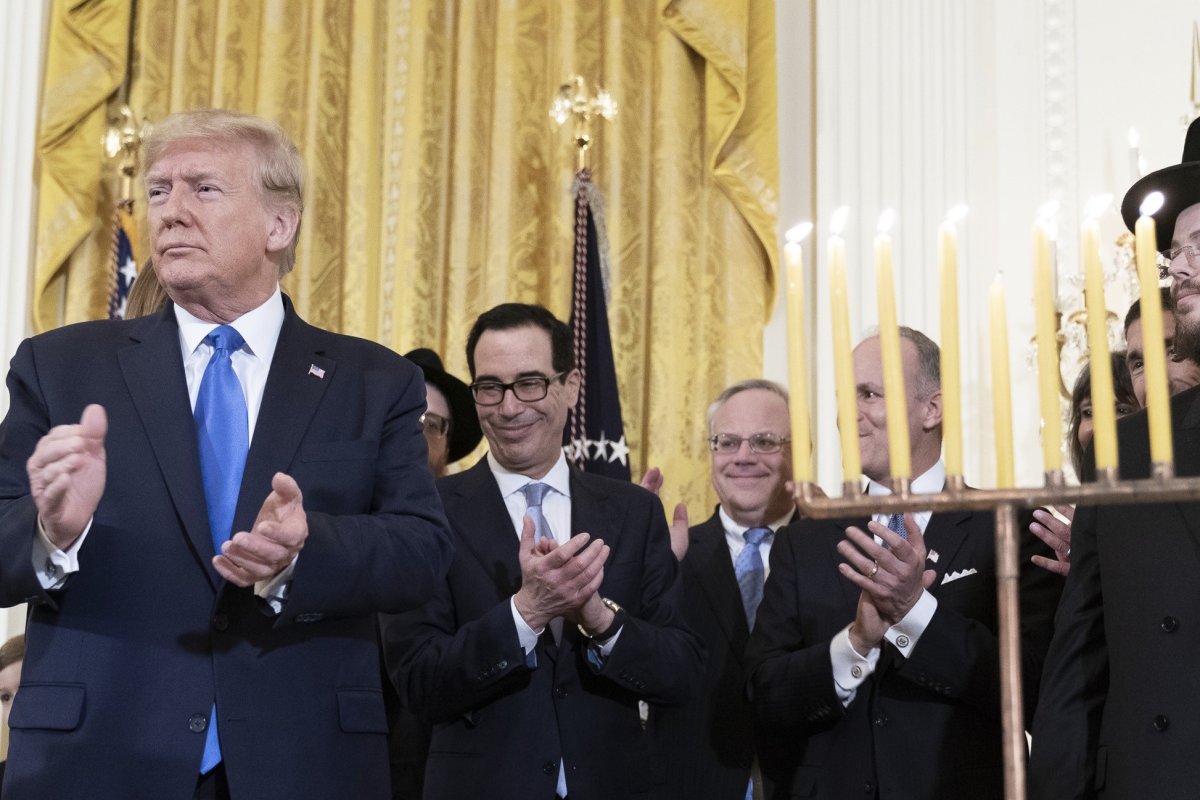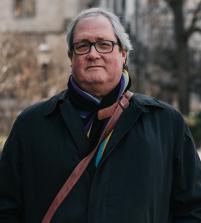
Free Speech in Poetry and in Prose
What the President's executive order to combat anti-Semitism teaches us about the abuse and misunderstanding of free speech
“You campaign in poetry. You govern in prose.” With these sentences, one of America’s gifted wordsmiths, Governor Mario Cuomo, articulated a fundamental fault line in America’s political life, and not incidentally in its underlying deliberative culture. That fault line—between prospective idealism and the moment of pragmatic action—emerges with special acuity when the topic is the state of Israel, or the principle of free speech. In the past week, those two contested topics merged with specific reference to yet a third fraught environment that claims a central role in fostering America’s deliberative culture—college campuses.
This “perfect storm” of religion, free speech, and education was launched on December 11 with publication by The New York Times of an editorial by Jared Kushner (“President Trump Is Defending Jewish Students”), senior adviser to, and son-in-law of, the President, lauding a forthcoming executive order that defines Judaism as a nationality, with the explicit intent to combat rising anti-Semitism on college campuses. The order instructs the Department of Education to include complaints charging anti-Semitism under Title VI of the Civil Rights Act. Anti-Semitism, according to the order, may include “targeting the state of Israel.”
The editorial and the executive order together neglect any address to the very real—in principle and in practice—possibility that criticisms of Israel’s politics can be based in judgments about truth, justice, and fairness absent implication for the religious tradition that is Judaism. Taken together they also neglect a subtler, but equally important consideration: that such a distinction affords space to critique elected Israeli politicians who marshal quasi-theocratic language to justify their policies, whether proposed or enacted. Last but far from least, the editorial and the executive order reflect no recognition that deployment of the language of Title VI—which prohibits discrimination on the basis of race, color, or national origin—begs the question of which, exactly, of these terms applies to Judaism. Begging that question at least implicitly risks deeply troubling associations that informed the Holocaust.
This perfect storm of confusion generated its own sets of fault lines from interested parties.
The initial set appeared almost immediately among officials at the White House from which the executive order was issued. The Washington Post quotes a “senior administration official” stating that “There’s been a lot of unclarity surrounding the application of Title VI to Jewishness, basically, because of a question about whether Jewishness is primarily a religion—in which case Title VI would not apply to anti-Semitic discrimination—or whether it’s a race or national origin.” Another sought to clarify that the order does not aim to limit either freedom of expression or the suppression of the BDS (the “Boycott, Divestment, Sanctions” movement that identifies and criticizes institutional support that it regards as in de facto collusion with Israel’s policies regarding the Palestinian people and its military presences on the West Bank and in Gaza). A third “official” clarified that the order is in direct response to rising numbers of incidents of anti-Semitism at colleges and universities and aims to afford Jewish students who experience religious discrimination the same legal recourse as students who experience racism.
A second, albeit more coherent, set of fault lines soon after emerged among organizations that seek to speak for Judaism and Jewish people. The Simon Wiesenthal Center lauded the timing of the executive order for sending a “global message” at a moment of “surging antisemitism on both sides of the Atlantic.” Israeli foreign minister Yisrael Katz issued a call to other countries to follow the United States, explicitly invoking the BDS movement and campus antisemitism. At the same time, J Street’s Jeremy Ben-Ami issued a statement expressing concern that the order will have “a chilling effect on free speech,” stating that it “is misguided and harmful for the White House to unilaterally declare a broad range of nonviolent campus criticism of Israel to be anti-Semitic, especially at a time when the prime driver of anti-Semitism in this country is the xenophobic, white nationalist far-right.”
Very little of this is truly conducive to a deliberative culture about religion or free speech, much less how education might contribute to thoughtful conversation about each. What might such a conversation look like? I propose that free speech must encompass both poetry and prose, in the sense that it must articulate ideals and practices in the same speech-act. In the language of literary criticism, it must seek resonance yet acknowledge assonance.
With regard to its poetry, we might recall that Judaism is, arguably, distinctively and perhaps (in the formulation of Paul Mendes-Flohr) uniquely, a religion of exile. This can be traced as fact and as ongoing source of vexation and angst both within the practices and thought of Judaism, and in the ways it has been manipulated and controlled by forms of power extrinsic to it (social, political, religious, etc.). On the prosaic side, the tragedy of the Holocaust understandably, arguably appropriately, forced the hand of international politics toward the establishment of an Israeli state and, with it, a concomitant inversion of Judaism’s exilic history. Neither the poetry nor the prose is unambiguous, but the fault line is clear: a persecuted religion found relief in a particular political act which, paradoxically, is in tension with its essential nature. Awareness of the fault line surely counsels against the simplistic use of words such as “Jewishness,” and of associations of Judaism with “race” or “nationality.”
With regard to its poetry, free speech—on campus or off—enshrines diversity of judgment and the eloquent articulation and free and candid exchange of diversity of opinion. On campuses, this value is often articulated as the hallmark of excellence in scholarship and teaching. American higher education has indisputably benefitted from and done at times noble work in advancing these ideals across a wide range of intellectual endeavors encompassing the humanities, the social and natural sciences, and the professions of law, medicine, ministry, social service, and public policy. On the prosaic side, the implementation and ongoing sustenance of these ideals have not been immune to the various blandishments of elitism, whether informed by considerations of class, race, or money. Too often the disinterested quest for knowledge has been shaped by interested acquisition.
In the end, our age may need to revise Governor Cuomo’s articulation. Rather than delineating prose and poetry on a temporal plane, a truly deliberative culture requires participants whose exercise of free and deliberative speech speaks at once poetically and prosaically. The most powerful articulations of ideals must walk hand in hand with the determined vigilance that, in seeking their institutionalization, we avoid eliding the poetic in the name of the prosaic. This will by no means eliminate debate; but it will avoid malfeasance of characterization, revision of history, and scuttling of legal precedent. Then, and only then, will we approximate a deliberative culture in which freedoms of speech and of religion can be possible. ♦
Image: Donald Trump at the White House Hanukkah party, December 11, 2019, where he also signed an executive order aimed at combating anti-Semitism. (Photo: Brendan Smialowski)
Sightings is edited by Joel Brown, a PhD Candidate in Religions in the Americas at the Divinity School. Sign up here to receive Sightings via email. You can also follow us on Facebook and Twitter. The views and opinions expressed in this article are those of the author and do not necessarily reflect the position of the Marty Center or its editor.


